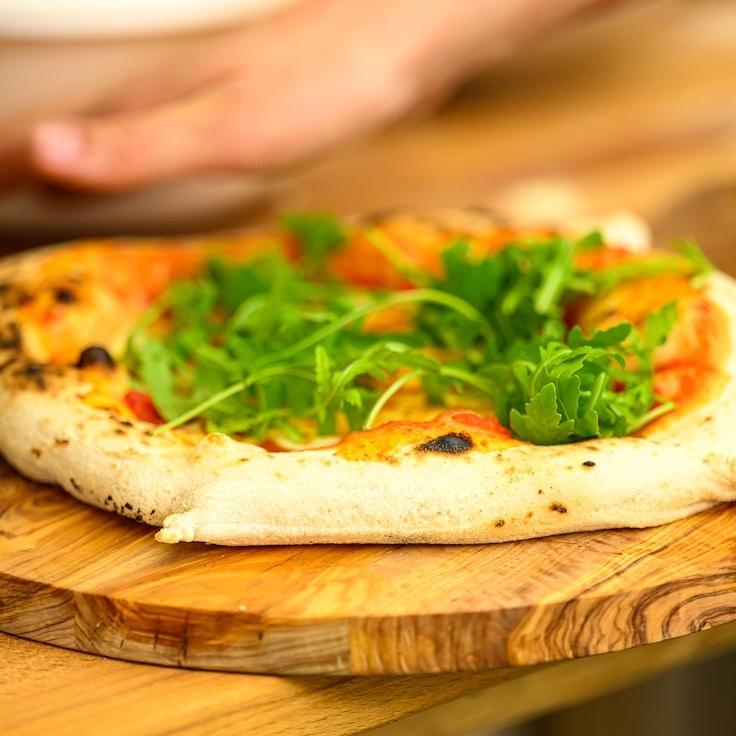Here at MellowAtlas, our philosophy is that exceptional pizza begins with outstanding dough. With over 30 years refining our recipe, we're thrilled to divulge a few of our dough-making secrets, though our special recipe will remain our own cherished tradition. Follow these guidelines to achieve a pizzeria-caliber pizza dough right in your kitchen.
Choice of Flour is Crucial
The cornerstone of superior pizza dough is the use of premium flour. We advocate the use of 00 flour, an ultra-fine Italian variety with a protein content around 12%, to strike an ideal mix of elasticity and softness. Should 00 flour be unavailable, a good alternative is bread flour, however, be prepared for a minutely altered texture.
Importance of Water Temp and Dough Hydration
Your water's temperature is pivotal in dictating the dough's rise time and overall development. For an extended fermentation process, enhancing flavor, opt for cooler water at approximately 45°F (7°C). Warmer water at about 85°F (29°C) will expedite the fermentation process. Aim for a dough hydration level, which is the water to flour ratio, of roughly 60-70%, particularly suitable for home ovens.
A Pinch of Yeast and a Patience for Fermentation
A tip to achieving richly flavored dough is to use smaller yeast quantities and extend fermentation time. Employ a mere 0.2% of fresh yeast in proportion to the flour for a fermentation duration of 24-48 hours. This extended period cultivates intricate flavor profiles while yielding a more digestible dough.
Salt's Role Extends Beyond Taste
Salt does more than just enhance taste—it fortifies the gluten network and moderates fermentation. We suggest incorporating fine sea salt at a level of 2.5-3% of the flour's weight. Integrate it once the flour and water begin to merge, safeguarding the yeast from direct contact with the salt.
Fermentation: A Delicate Process
Post-mixing, let your dough undergo a bulk fermentation phase at ambient temperature for around 2 hours, then apportion it into separate dough balls. Store them in lidded containers and refrigerate for a period ranging from 24 to 72 hours. It's within this chilled fermentation stage that transformative processes occur, with enzymes breaking down starches into sugars, culminating in both flavor and the crust's appealing browning.
Delicate Handling of Dough
Prior to pizza creation, take the dough out of the refrigerator 1 or 2 hours ahead of baking to bring it up to temperature. Take care to treat the dough softly to retain the air pockets that formed. Press and stretch the dough with your fingertips rather than rolling it out, which would deflate those desirable air bubbles.
Heat: The Essential Finale
While our pizzas are cooked in wood-fired ovens that can reach 850°F (454°C), a typical home oven usually maxes out at 550°F (288°C). Compensate by using a pizza stone or steel preheated for a minimum of one hour, ensuring the dough receives the strong bottom heat essential for crispy edges and a light interior.
Perfection in pizza dough is an ongoing exploration rather than a final achievement. With each batch comes new insights into the craft. Document your findings, play around with the conditions, and find the methods that best suit your personal kitchen space.
For a live demonstration of our dough-making process, consider attending one of our monthly pizza classes hosted by Chef Alessandro. These sessions provide a detailed look into these techniques. For upcoming class dates, refer to our events schedule!

